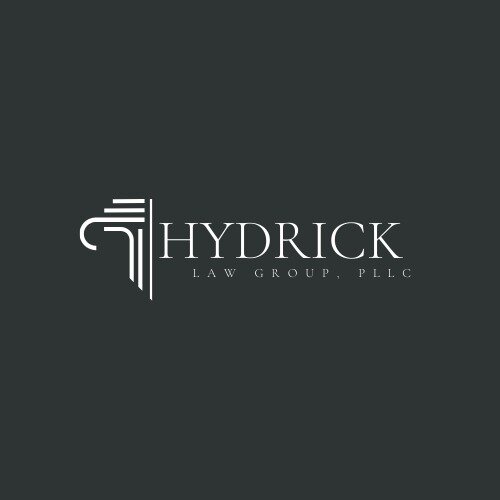Best Corporate & Commercial Lawyers in Atlanta
Share your needs with us, get contacted by law firms.
Free. Takes 2 min.
List of the best lawyers in Atlanta, United States
United States Corporate & Commercial Legal Articles
Browse our 1 legal article about Corporate & Commercial in United States written by expert lawyers.
- United States NY LLC Transparency Act 2026 Compliance Guide
- The federal Corporate Transparency Act (CTA) and New York's LLC Transparency Act are separate regimes: reporting to FinCEN does not satisfy New York's 2026 state filing requirement. Most small corporations and LLCs in the United States must file Beneficial Ownership Information (BOI) with FinCEN starting 2024, unless a specific federal... Read more →
About Corporate & Commercial Law in Atlanta, United States
Corporate and commercial law in Atlanta covers the legal framework and issues involved in running and managing businesses. This broad field includes business formation and organization, contract drafting and negotiation, mergers and acquisitions, employment law, intellectual property, regulatory compliance, and dispute resolution. Atlanta, as a major business hub in the Southeast, is home to a diverse range of small businesses, startups, and large corporations, and its corporate legal landscape reflects both Georgia state law and federal regulations.
Why You May Need a Lawyer
There are several situations where individuals or businesses in Atlanta may require legal assistance in corporate and commercial matters. Common scenarios include:
- Starting a new business and determining the best legal structure (LLC, corporation, partnership, etc.)
- Drafting, reviewing, or negotiating contracts with vendors, customers, or business partners
- Handling mergers, acquisitions, joint ventures, or business sales
- Navigating regulatory compliance on local, state, and federal levels
- Advising on employment policies, agreements, and disputes
- Protecting intellectual property such as trademarks, copyrights, and trade secrets
- Resolving business disputes through litigation, mediation, or arbitration
- Corporate governance and fiduciary duties for directors and officers
A qualified corporate and commercial attorney can guide you through legal complexities, help manage risk, and ensure your business’s interests are protected.
Local Laws Overview
While general corporate law is shaped by federal regulations and commonly accepted legal principles, certain aspects are specific to Atlanta and the state of Georgia:
- Business Formation: Georgia law dictates how entities such as LLCs, corporations, and partnerships are formed and managed. The Georgia Secretary of State oversees filings and regulations for business entities.
- Contract Law: Most business agreements in Georgia are governed by state contract law, which establishes requirements for enforceability and available remedies for breach.
- Employment Law: Georgia is an employment-at-will state, but there are still state and federal laws governing discrimination and workplace safety.
- Regulatory Compliance: Certain industries are highly regulated at the local or state level, including real estate, healthcare, and food service. Atlanta businesses must also navigate local ordinances regarding zoning, licensing, and permits.
- Taxation: Georgia imposes state corporate income taxes and other business-related taxes that are relevant for Atlanta businesses. Local city taxes may also apply.
- Business Disputes: Disputes are typically handled in Georgia state courts, though federal courts may have jurisdiction in some cases.
Frequently Asked Questions
What is the best structure for my business?
The ideal business structure depends on many factors including liability, taxation, number of owners, and funding needs. Common structures in Atlanta include LLCs, S-corporations, and partnerships. A lawyer can help you choose and set up the right structure for your goals.
Do I need a written contract for every business relationship?
While not always legally required, written contracts help clarify obligations and protect your interests if disputes arise. It is wise to formalize important relationships in writing and have a lawyer review major agreements.
What should I consider when hiring employees in Atlanta?
Make sure you comply with state and federal employment laws, including minimum wage, overtime, and anti-discrimination statutes. Proper employment agreements and clear workplace policies are also essential.
How can I protect my company's intellectual property?
Trademarks, copyrights, patents, and trade secrets can be protected through registration, contracts, and non-disclosure agreements. An attorney can advise on the best strategies for your specific business assets.
What local business licenses or permits do I need in Atlanta?
Most businesses in Atlanta must obtain a business license from the city, and certain industries may require additional permits. Requirements can vary by business type and location, so consult the City of Atlanta and relevant county offices.
How do mergers and acquisitions work in Georgia?
M&A transactions involve negotiating, drafting, and executing complex documents, complying with regulatory requirements, and conducting due diligence. Legal counsel is highly recommended for these transactions to minimize risks and ensure compliance.
What are my options if my business is facing a lawsuit?
You can respond to a business lawsuit by working with an attorney to assess the claim, develop a defense strategy, negotiate settlements, or defend the case in court. Early legal intervention is key to protecting your interests.
Are non-compete agreements enforceable in Georgia?
Georgia law does allow non-compete agreements, but they must be reasonable in scope, duration, and geography. Court enforcement depends on specific terms and context, so have an attorney draft or review any non-compete agreements.
What records am I required to keep as a business owner?
You should maintain accurate business records including financial statements, tax documents, meeting minutes, bylaws or operating agreements, and licenses or permits. Some records are required by state law for certain entity types.
When should I contact a corporate lawyer?
Contact a lawyer whenever you face complex contracts, regulatory issues, legal disputes, major transactions, or anytime you are unsure about the legal implications of a business decision. Proactive legal advice helps you avoid costly mistakes.
Additional Resources
- Georgia Secretary of State - Oversees business entity registration and filings
- City of Atlanta Office of Business Affairs - Provides information on business licenses and permits
- U.S. Small Business Administration (SBA) - Georgia District Office - Offers resources and support for business owners
- Georgia Department of Revenue - Information on state taxes affecting businesses
- Atlanta Bar Association - Business & Finance Section - Referrals and educational events for business owners
- Georgia State University College of Law Business Clinics - May offer pro bono or low-cost legal guidance for small businesses and startups
Next Steps
If you need legal assistance with a corporate or commercial matter in Atlanta, consider these steps:
- Gather relevant documents and details about your business or legal issue
- Identify your main concerns or objectives (for example, starting a business, resolving a dispute, or drafting a contract)
- Contact a qualified corporate and commercial lawyer or law firm based in Atlanta
- Request an initial consultation to discuss your situation and potential strategies
- Use government, business, and legal resources for background information, but rely on a licensed attorney for tailored legal advice
Acting early and consulting with a knowledgeable professional can help you comply with the law, protect your business, and avoid costly mistakes down the road.
Lawzana helps you find the best lawyers and law firms in Atlanta through a curated and pre-screened list of qualified legal professionals. Our platform offers rankings and detailed profiles of attorneys and law firms, allowing you to compare based on practice areas, including Corporate & Commercial, experience, and client feedback.
Each profile includes a description of the firm's areas of practice, client reviews, team members and partners, year of establishment, spoken languages, office locations, contact information, social media presence, and any published articles or resources. Most firms on our platform speak English and are experienced in both local and international legal matters.
Get a quote from top-rated law firms in Atlanta, United States — quickly, securely, and without unnecessary hassle.
Disclaimer:
The information provided on this page is for general informational purposes only and does not constitute legal advice. While we strive to ensure the accuracy and relevance of the content, legal information may change over time, and interpretations of the law can vary. You should always consult with a qualified legal professional for advice specific to your situation.
We disclaim all liability for actions taken or not taken based on the content of this page. If you believe any information is incorrect or outdated, please contact us, and we will review and update it where appropriate.
Browse corporate & commercial law firms by service in Atlanta, United States
Atlanta, United States Attorneys in related practice areas.















